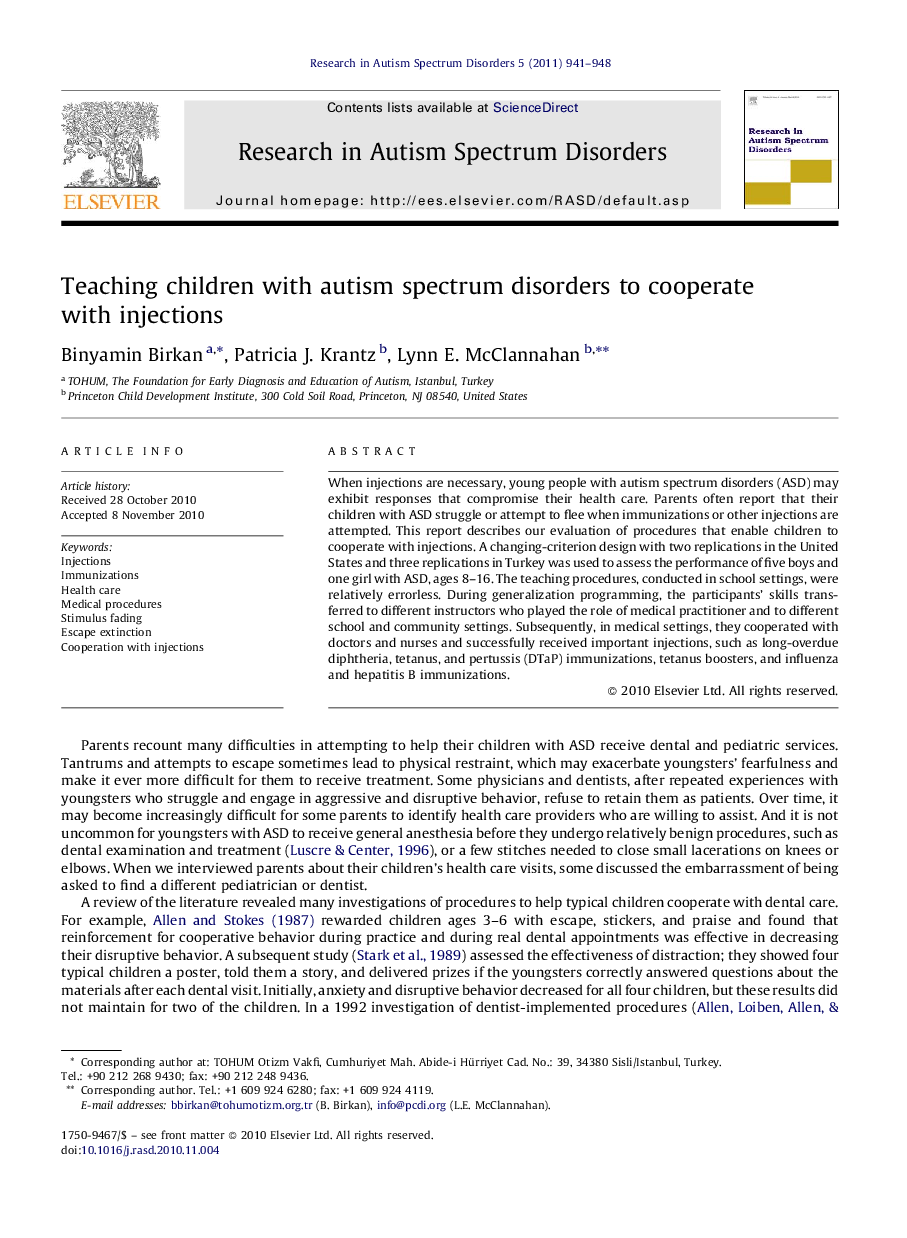| Article ID | Journal | Published Year | Pages | File Type |
|---|---|---|---|---|
| 370319 | Research in Autism Spectrum Disorders | 2011 | 8 Pages |
When injections are necessary, young people with autism spectrum disorders (ASD) may exhibit responses that compromise their health care. Parents often report that their children with ASD struggle or attempt to flee when immunizations or other injections are attempted. This report describes our evaluation of procedures that enable children to cooperate with injections. A changing-criterion design with two replications in the United States and three replications in Turkey was used to assess the performance of five boys and one girl with ASD, ages 8–16. The teaching procedures, conducted in school settings, were relatively errorless. During generalization programming, the participants’ skills transferred to different instructors who played the role of medical practitioner and to different school and community settings. Subsequently, in medical settings, they cooperated with doctors and nurses and successfully received important injections, such as long-overdue diphtheria, tetanus, and pertussis (DTaP) immunizations, tetanus boosters, and influenza and hepatitis B immunizations.
Research highlights▶ There is virtually no research on teaching children with ASD to receive injections. ▶ This cross-cultural study included 6 participants from the U.S. and Turkey. ▶ Intervention included stimulus fading and extinction of escape behavior. ▶ The procedures were “errorless”––error rates ranged from .02% to 2%. ▶ After completing the program, all 6 participants successfully received injections.
